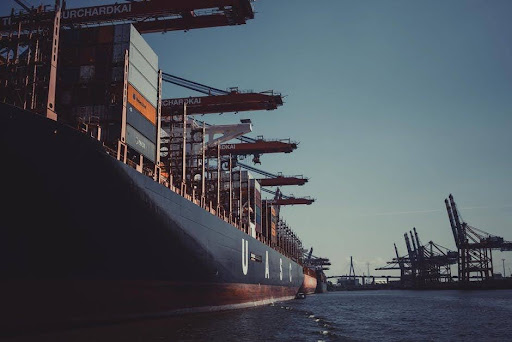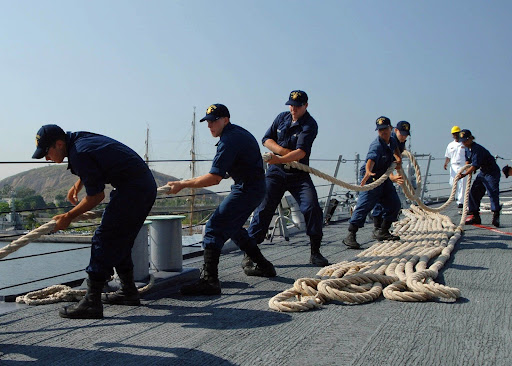Maritime careers offer diverse opportunities, ranging from navigational roles to engineering positions on vessels. For those already in the industry, advancing to the next level often requires more than experience; it may demand specialized training.
As the maritime sector evolves with technology and regulations, continuous education becomes essential. Understanding when to invest in specialized training can significantly impact your career trajectory. Let’s explore various factors that indicate a need for such training and how it can open doors to advanced roles within the industry.
Recognizing Career Growth Opportunities
Identifying when to pursue specialized training begins with recognizing personal aspirations and career growth opportunities. Take stock of your current position and assess your long-term goals. If you are looking for current maritime jobs, you must know which qualifications, skills, and certificates are required for your desired positions before applying. As new technologies emerge, never forget to keep yourself updated. Specialized training can provide the theoretical knowledge and practical skills needed to excel. Therefore, evaluating the future landscape of maritime careers or other desired roles can pinpoint when further training becomes a must.
Understanding Industry Trends
The maritime industry is continually evolving due to technological advancements and regulatory changes. Keeping abreast of industry trends can indicate when to seek specialized training. The introduction of automation in vessels and the rise of green technologies create a demand for skilled professionals who understand these systems.
Regulatory requirements often shift, necessitating familiarization with new compliance standards. Attending industry conferences, participating in workshops, or subscribing to relevant publications can offer insights into these trends. When your current skill set starts to feel outdated compared to emerging trends, it may be time to consider enrolling in specialized training programs.
Assessing Job Requirements
Examining job descriptions for positions you aspire to can also guide your training pursuits. Many advanced roles in maritime transportation increasingly list specific certifications and competencies as prerequisites. Positions in marine engineering may demand expertise in specific software or machinery not covered in basic training. As you analyze current opportunities in your field, look for gaps between your qualifications and the job requirements.
If you find that your skill set does not align with what employers seek, specialized training is almost certainly necessary. Investing in these programs will prepare you for future opportunities and enhance your marketability in a competitive space.
Networking and Professional Development
Networking is the fastest way to enhance your maritime career. Engaging with industry peers and mentors can reveal insights into when training might be beneficial. Sometimes, conversations with seasoned professionals provide a clearer picture of necessary skills and qualifications. Participating in professional organizations and attending networking events can enhance your visibility and enable you to gather valuable information.
Industry leaders frequently recommend specific training programs based on their hiring experiences. Leveraging these opportunities can highlight the importance of specialized training in career advancement. Know that personal connections can also lead to sponsorship opportunities for training.
Increased Earning Potential
Specialized training may turn into higher earning potential, an important consideration when evaluating career advancement strategies. Many maritime roles offer competitive salaries, but those with specialized skills or certifications often command higher pay.
Research shows that professionals equipped with advanced training in areas like maritime law or logistics can see substantial increases in their income. This economic incentive should not be underestimated when deciding on further education. Weighing the costs of the training against the potential salary increase offers a practical insight into the return on investment. If you’re looking to enhance your earnings, targeted training should be an integral part of your strategy.
Meeting Regulatory and Safety Standards
Compliance with maritime regulations aims to maintain safety and order. Specialized training may encompass current safety protocols, vital for effective operation within the maritime sector. Understanding the latest regulatory updates can safeguard both crew and vessels, preventing accidents and legal repercussions.
Inadequate knowledge may be the cause of serious violations or unsafe practices, both of which can derail a career. Certifications in safety and regulatory guidelines can enhance credibility, showcasing a commitment to adhering to industry standards. Many maritime positions require specific certifications to operate legally and safely. Missing these qualifications can hinder advancement opportunities in your desired field.
Professionals aiming for leadership or supervisory roles must understand these regulations and have the capability to implement them effectively. The Maritime Labor Convention (MLC) and International Maritime Organization (IMO) set rigorous standards addressing safety and welfare.
Identifying Skills Gap in Your Resume
A thorough analysis of your resume can reveal gaps that may hinder progression in your maritime career. Identifying areas lacking in skills or qualifications provides a clearer direction for necessary training. New maritime roles require a blend of soft and hard skills; specialized training can help address both. You may require enhanced technical skills for specific machinery or better leadership abilities for managerial roles.
Employers look for well-rounded candidates, and demonstrating an initiative to fill these gaps can present you as a proactive applicant. Continuing education focused on these gaps improves employability and opens doors to specialized positions. Seek feedback from industry professionals to highlight specific areas for improvement, guiding your training goals. Positions in high demand may require specialized training that aligns with modern expectations. Addressing these gaps on your resume improves your proficiency and increases your value in the eyes of potential employers.
Personal Motivation and Commitment
Your dedication to personal growth and professional development may decide when to pursue specialized training. Self-motivation can drive you to seek additional knowledge and skills that set you apart from your peers. If you feel a strong desire to expand your capabilities and enhance your value in your current role, that intention may signal the right time for specialized training.
However, commitment also involves making sacrifices, such as time and financial investment. A thorough evaluation of your career aspirations and willingness to devote effort and resources is a must. Taking this step is not merely for advancement but also for personal satisfaction and empowerment.
 Recognizing when to consider specialized training in maritime careers involves evaluating personal career goals, staying attuned to industry trends, assessing job requirements, engaging in networking, understanding financial incentives, embracing personal motivation, and utilizing employer resources. Each of these factors contributes to a clearer understanding of your professional journey and the opportunities that lie ahead.
Recognizing when to consider specialized training in maritime careers involves evaluating personal career goals, staying attuned to industry trends, assessing job requirements, engaging in networking, understanding financial incentives, embracing personal motivation, and utilizing employer resources. Each of these factors contributes to a clearer understanding of your professional journey and the opportunities that lie ahead.

